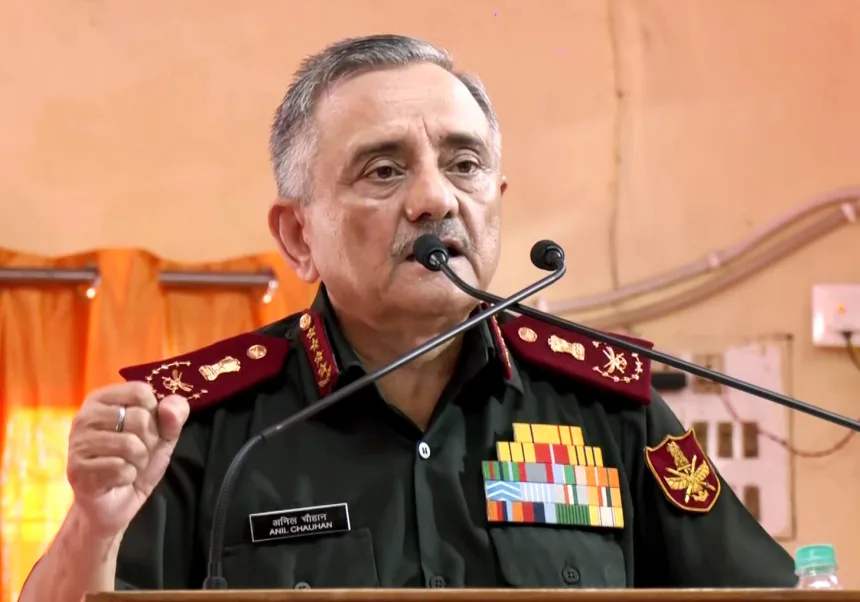Chief of Defence Staff General Anil Chauhan said on Friday that the border dispute with China is the biggest security challenge for India, and the second major challenge is Pakistan’s proxy war.
Speaking at an event in Gorakhpur, the CDS referred to the security challenges being faced by India and those it will face in the future.
“One of the first challenges is regarding the boundary dispute…I consider the dispute with China as the biggest challenge. The second major challenge is Pakistan’s proxy war with a strategy to ‘bleed India by a thousand cuts’,” he said.
“Another challenge is regarding the type of war to be fought. Everyone knows that war is changing. It is not just Navy, Army, and Air Force, but also space, cyber, electro-magnetic domain has been included too,” he said.
The CDS said that people associate self-reliance only with defence production, but it should also be associated with defence research
“When we talk about national security, an important aspect of it is also self-reliance. Most people associate self-reliance only with defence production, but it should also be associated with defence research and we should be self-reliant in it,” he said.
The CDS said India and Pakistan learned different lessons after the Balakot operation, which was carried out by India in response to the Pulwama terror attack.
“India focused on long-range precision strike weapons and post-strike damage assessment, and Pakistan might have focused on its air defence…During the surgical strikes after the 2016 Uri terror attack, the Indian Army entered Pakistan by land and destroyed the terrorist camps. We conducted airstrikes in Khyber Pakhtunkhwa region after Pulwama attack. After the Pahalgam, terror attack happened, we already had enhanced precision strike capabilities. When we discussed with the political leadership, it was decided that by only using drones and loitering munitions, we will not be able to achieve the political objectives. To destroy terrorist camps in Bahawalpur and Muridke , it was necessary to use air power,” he added.
The CDS said that during Operation Sindoor, the political leadership provided a clear direction with a clear message to destroy the terrorist camps, and retaliate only if we are attacked.
“During Operation Sindoor, we were given full operational freedom, including planning and selection of targets,” he said.
Chinese Foreign Minister Wang Yi had visited India last month ahead of the SCO Summit hosted by China in Tianjing.
During the visit, India and China decided on setting up a Working Group, under the WMCC, to advance effective border management to maintain peace and tranquillity in the India-China border areas
The two countries decided on the creation of General Level Mechanisms in Eastern, and Middle Sectors, in addition to the existing General Level Mechanism in Western Sector, and holding an early meeting of the General Level Mechanism in the Western Sector.
They agreed to use the border management mechanisms at diplomatic and military levels to carry forward the process of border management, and discuss de-escalation, beginning with the principles and modalities thereof. (ANI)






